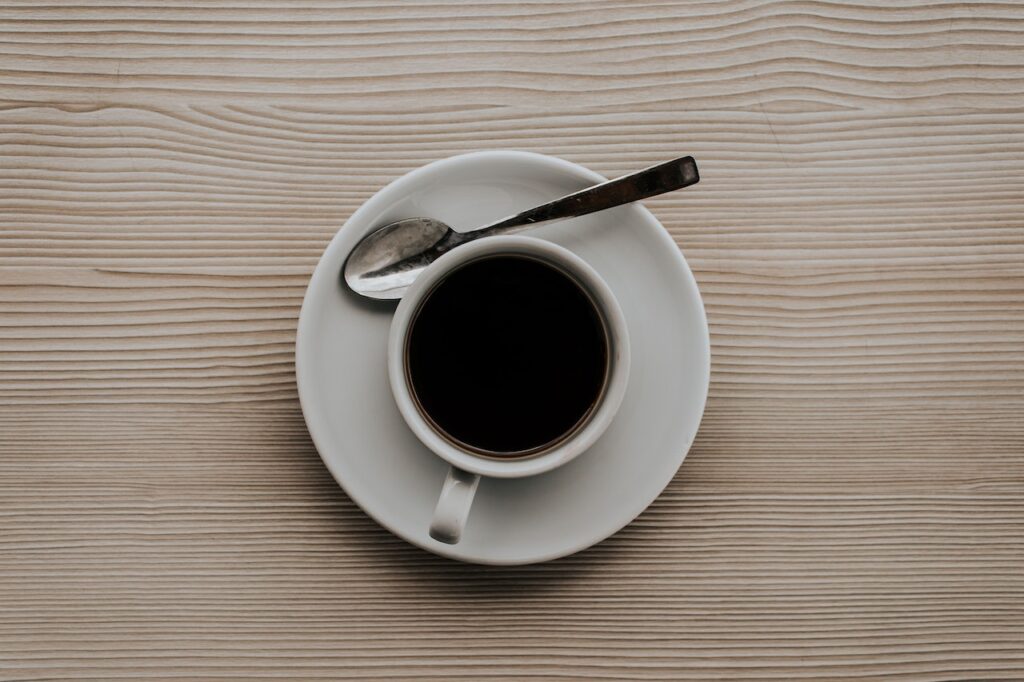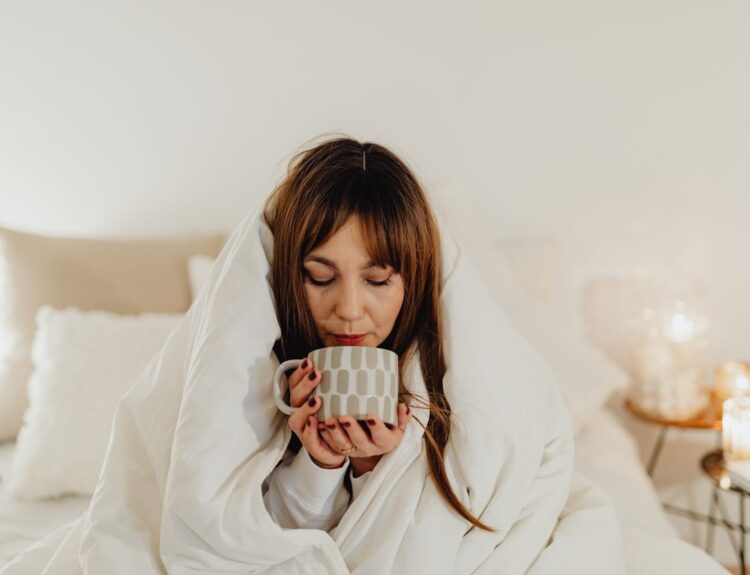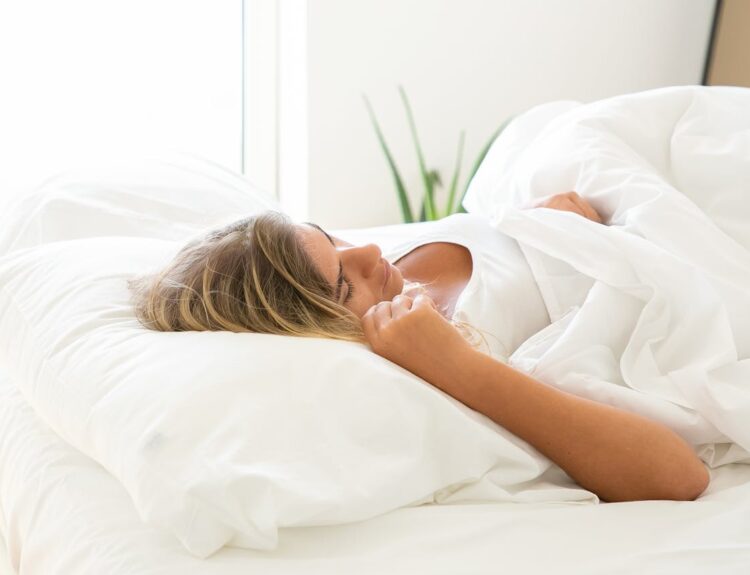Does caffeine disrupt sleep? This question plagues those who want to supercharge their days and enjoy blissful sleep at night. While caffeine can be a powerful tool for boosting energy and productivity, overconsumption can disrupt sleep, leaving you tired and groggy. In this article, we’ll explore the science of caffeine and sleep quality and share practical tips for finding the right balance. Whether you’re a coffee addict or a tea lover, we offer solutions and strategies for maximizing your caffeine intake while getting the restorative sleep your body needs. So, let’s discover how to enjoy caffeine without sacrificing your sleep!
In this article, you can learn more about:
- Does caffeine disrupt sleep? Science of caffeine and sleep
- How much caffeine is too much? Finding the right balance for better sleep
- The benefits of limiting caffeine consumption for better sleep
- Caffeine, sleep, and productivity: What you need to know
- Tips for enjoying caffeine without compromising your sleep quality
DOES CAFFEINE DISRUPT SLEEP? SCIENCE OF CAFFEINE AND SLEEP
By understanding how caffeine works in your body, you can make informed decisions about caffeine intake. Caffeine blocks the action of adenosine, a neurotransmitter that promotes sleepiness. When consumed in moderation, caffeine can improve alertness and mental performance. However, excessive caffeine consumption can lead to prolonged sleep latency, making it more difficult to fall asleep at night.
Fortunately, there are several ways to limit the adverse effects of caffeine on sleep quality. One strategy is to limit caffeine consumption later in the day, as the effects of caffeine can last for several hours. Another option is to consume caffeine earlier in the day, allowing your body to metabolize it fully before bedtime. Additionally, some people are more sensitive to caffeine than others. Hence, paying attention to how caffeine affects sleep and adjusting consumption is essential.
Whether you’re a coffee lover or a tea enthusiast, there are ways to enjoy caffeine’s benefits while prioritizing your sleep.
HOW MUCH CAFFEINE IS TOO MUCH? FINDING THE RIGHT BALANCE FOR BETTER SLEEP
The answer on does caffeine disrupt sleep and how much caffeine is too much varies depending on the individual’s tolerance and sensitivity to caffeine. The recommended daily limit for caffeine consumption is 400 milligrams, equivalent to roughly 4 cups of coffee. However, some people may experience adverse effects from much lower doses of caffeine. In contrast, others may be able to consume more without experiencing negative effects.
To find the right balance for better sleep, paying attention to how caffeine affects your body is essential. If you experience difficulty falling asleep or staying asleep, reduced sleep quality, or daytime drowsiness, it may be a sign that you are consuming too much caffeine. To reduce caffeine consumption, consider gradually reducing your intake or switching to decaffeinated versions of your favorite drinks.
It’s also crucial to pay attention to the timing of caffeine consumption. Consuming caffeine close to bedtime can disrupt your sleep, so avoiding caffeine in the afternoon and evening would be best. Additionally, consuming caffeine with meals can slow the absorption rate and reduce its impact on sleep.
Finding the right balance of caffeine consumption is vital for promoting better sleep. Pay attention to your body’s response to caffeine to enjoy caffeine’s benefits without disrupting healthy sleep habits.
The benefits of limiting caffeine consumption for better sleep
- Regulating sleep patterns: Consuming caffeine too close to bedtime can disrupt sleep, so limiting caffeine intake can help to promote healthy sleep habits.
- Reducing nighttime awakenings: Consuming caffeine later in the day can cause wakefulness and alertness at night, disrupting sleep. Limiting caffeine consumption may lead to fewer nighttime awakenings, improving sleep quality and duration.
- Reducing the risk of sleep disorders: Researches show that excessive caffeine consumption increases the risk of sleep disorders such as insomnia. Limiting caffeine intake can reduce the risk of developing these conditions and promote overall sleep health.
- Improving overall health: Adequate sleep is essential for maintaining our well-being. Limiting caffeine consumption and prioritizing healthy sleep habits can promote better overall health.
CAFFEINE, SLEEP, AND PRODUCTIVITY: WHAT YOU NEED TO KNOW
Regarding caffeine and productivity, there are many ways to harness the positive effects of this natural stimulant. By consuming caffeine in moderation and at the right time, we can experience increased alertness, improved mental performance, and greater daily productivity.
The most crucial factor to consider is timing. Consuming caffeine earlier in the day, such as with breakfast or mid-morning, can boost energy and mental focus throughout the day. This can help us tackle tasks and projects more efficiently and accurately, increasing productivity and success.
In addition, the type of caffeine source can also play a role in optimizing productivity. Coffee and tea, for example, contain other compounds, such as antioxidants, that can provide additional health benefits. By choosing high-quality sources of caffeine, we can reap the benefits of increased productivity while supporting overall health and well-being.
Overall, the key to optimizing productivity with caffeine is to approach it positively and be mindful. By consuming caffeine in moderation and at the right time, we can harness the positive effects of this natural stimulant and achieve greater productivity, success, and overall well-being.
Go ahead and enjoy that cup of coffee or tea – with the right approach, caffeine is a powerful tool while achieving your goals.
TIPS FOR ENJOYING CAFFEINE WITHOUT COMPROMISING YOUR SLEEP QUALITY
- Enjoy caffeine earlier in the day: If you love having a cup of coffee or tea in the afternoon or evening, try shifting your caffeine consumption to earlier. In this way, your body will have more time to metabolize the caffeine before bed.
- Switch to decaf: If you adore the taste of coffee or tea but want to avoid caffeine, consider switching to decaf. Decaf options are widely available and taste as delicious as regular coffee or tea.
- Experiment with your caffeine intake: Everyone’s body is different, so it’s essential to experiment with your caffeine intake to find what works best for you. Try reducing your caffeine consumption or switching to a lower caffeine alternative to see if it makes a difference in your sleep quality.
- Make sure to get enough sleep: While it’s vital to enjoy caffeine in moderation, it’s equally important to ensure you get enough sleep each night. Prioritizing sleep will help you feel more energized and productive throughout the day without relying solely on caffeine.
- Try alternatives: If you’re seeking a way to boost your energy and focus, try herbal teas or other natural alternatives like matcha.
Following these tips, you can still enjoy your favorite caffeine drinks without compromising your sleep quality or overall health. Remember, moderation is vital, and taking care of your body and mind should always be a top priority.
_____
Caffeine can have a significant impact on sleep quality. While caffeine can provide a helpful energy boost during the day, overconsumption or consumption too close to bedtime can disrupt sleep, leaving you feeling tired and groggy the next day. So, the next time you ask yourself, “Does caffeine disrupt sleep?” remember that with the right approach, you can have both the energy and the restorative sleep your body needs.
This post may contain affiliate links. You can read the affiliate disclosure here.










